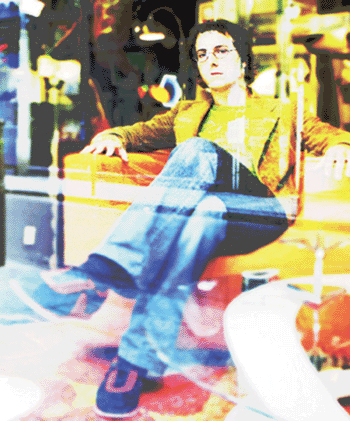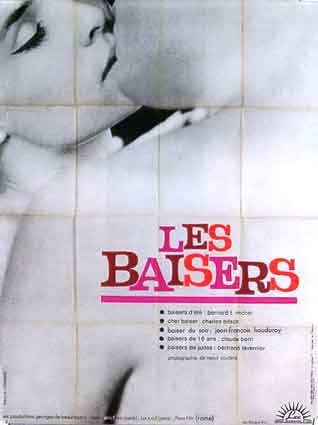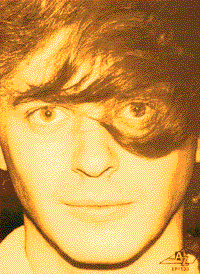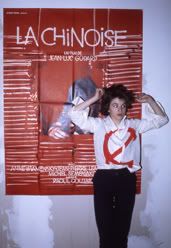There are music discoveries, and then there are music discoveries. Most people are content to float along in life, waiting for new music to find them. When it does, it's usually via MTV, the radio, or a TV commercial. Others listen to suggestions from friends and music magazines, or perhaps check out the recommended releases section at their local record store.
And then there are those of us for whom it is a sickness, those of us who wave a newly beloved record over our heads like a winning lottery ticket. We talk like the new bizarro long-lost psychedelic masterpiece is the cure for cancer, and as part of the small cultural elite who knows about it, we are practically entitled to some of the credit for its brilliance. The artists responsible become Colossus of Rhodes-sized gods to us, and if they are still active we await their new releases with mouth-foaming religious fervour.
Well...Julien Ribot kind of makes me feel that way.

Thanks to the aforementioned savvy German francophiles at Le Pop, Ribot's two lush, masterful albums have entered my auditory system. A genuine music prodigy, he has collaborated in the past with big names like Kahimi Karie, Françoiz Breut, and Katerine, as well as achieving some notoriety in France for his version of the Beatles' "Revolution" in a television commercial.
The music itself is hard to describe, much less categorise. Orchestral samples, drum machines, live drums, vintage synths, horns, guitars, falsetto backing vocals, and M. Ribot's witty, slightly cocky voice combine to create music that rests somewhere between disco, laptop rock, French chanson, electronica, and prog. Words fail me, but I find the result to be utterly addictive.
"Sept Mille Dollars," from his debut Hôtel Bocchi, is quintessential Julien Ribot. It sounds like something you'd hear blasting from a French discothèque circa 2088.
"Fille Nº 70," from the brilliant concept album La Métamorphose De Caspar Dix, speaks the international language of sex. What more can I say?













